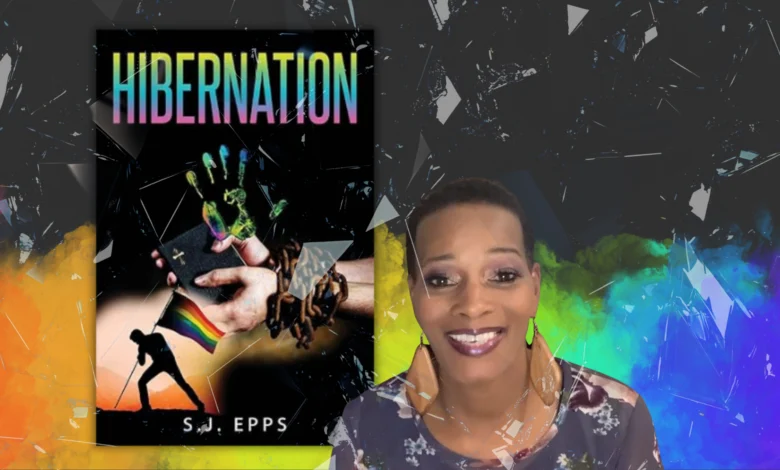Grace Under Fire: Explore Faith and Tolerance in a Divided America

Imagine a near-future America where the moral and cultural order has been flipped upside down—and where the fight for freedom of belief takes center stage. Set against a backdrop of courtroom showdowns, collapsing churches, and moral gray zones, Hibernation examines what happens when conviction collides with cultural revolution.
In this Q&A, author S.J. Epps discusses the dream that sparked the book, the research that shaped her legal and moral landscape, and the deeply human flaws of her characters. With empathy at its core, Hibernation invites readers to look beyond ideology to see the people beneath it.
Hibernation envisions a near-future America where the cultural and moral order has been flipped. What inspired you to explore this kind of reversal of societal norms?
This idea was birthed from a dream that I had shortly after same-sex marriage became law in the U.S. The dream was so vivid and the oppression was so heavy upon Christians and it was shocking that the religious freedoms that we enjoy today had been taken away.
What role did research or current events play in building this world—particularly the legal and media dimensions that appear throughout the novel?
Most of my research was drawn from watching legal dramas on TV such as Law and Order but I did research certain topics on the internet as well.
Winter’s internal conflict—his hidden identity versus his public persona—creates some of the novel’s most intimate tension. What drew you to telling a story about secrecy and duality within faith?
Winter’s internal conflict shows that while he is a very flawed individual, he still has a conscious and he really wants to do good and he falls into self-loathing at times because of his shortcomings but he is also able to be there for others in their time of need with the exception of truly being there for his wife.
The novel suggests that empathy must exist even amid irreconcilable moral divides. How important was it for you to humanize both sides of this cultural conflict?
I think it is very important to show both sides because as Christians we are called to love all people. The Word of God says this is how we know we have passed from death to life because we have love for the brethren. We cannot be harsh and critical. We must operate in love at all times.
Do you see Hibernation more as a cautionary tale about extremism—or as an exploration of grace in impossible circumstances?
I see it as a little bit of both. From the perspective of extremism, the tables could actually flip one day as Christians’ voices continued to be muffled or silence. As far as grace is concerned, this is what we as Christians must extend to our fellow man as we follow the example of Christ.
Hibernation flips the script on contemporary debates about tolerance and religious freedom. What do you hope readers take away about moral certainty and empathy?
I hope that readers will walk away knowing that even in difficult times, we must still show respect and love for our fellow man and strive to live at peace but also to live in truth.
Born in the deep south, affectionately known as The Bible Belt, SJ Epps has always been fascinated by civil right issues and things going on in the community from an early age. How people behave when faced with adversity or how they are triggered has always created a stir in the author’s curiosity. When the creative juices begin to flow, the author often finds herself inviting colorful and captivating characters to take up residence in her mind ever so often.
SJ Epps is a Gulf War Veteran and has a career in the medical profession. She is an avid reader as well as a writer with a particular interest in compelling fiction novels. She lives in North Texas with her husband.
